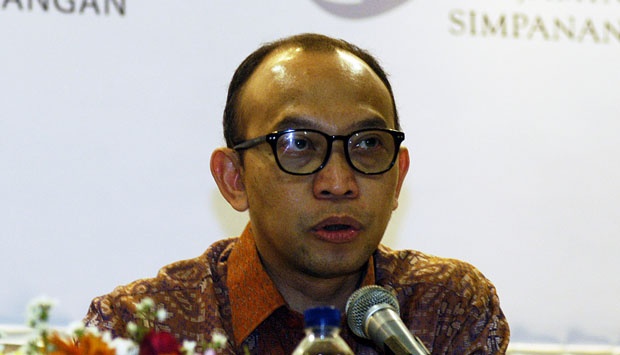Chatib Basri: The Penalty is Non-Negotiable
Translator
Editor
Jumat, 19 Oktober 2018 21:19 WIB

TEMPO.CO, Jakarta- After all the scandals exposing tax officials stealing government funds in the past, yet another incident has rocked the Finance Ministry. The police recently arrested Heru Sulastyono, Chief of the Customs and Excise Office at the Tanjung Priok port, for accepting a bribe from businesses. These incidents question the effectiveness of the Ministry's attempt to reform its administration. The increase in staff remuneration seems to have done little to suppress the greed to commit graft and corruption.
Unsurprisingly, bureaucratic reforms have become the top priority of the newly appointed Finance Minister Muhamad Chatib Basri. He must also tackle an equally complicated problem: the weakening rupiah.
For Chatib, it's like taking a ride on a roller-coaster, being weak amid a global economy linked to the quantitative easing (QE) to be reduced by the US Federal Reserve. According to Chatib, the absence of a QE can be a blessing for Indonesia, but it can also cause problems.
Last week, Chatib was interviewed by Tempo reporters Nugroho Dewanto, Retno Sulistyowati, Angga Sukma Wijaya and Heru Triyono, at his office in Central Jakarta. Excerpts:
What action will be taken against Heru Sulastyono, an official of the Customs and Excise Directorate General, who is charged with bribery?
I have formed a joint team comprising the Ministry's inspectorate general and the Customs and Excise Directorate General. Everyone involved in the case must be monitored. Right now, we are waiting to find out what the case covers. Some say it's a case of money laundering, others say it's about wrongful procedure.
What penalties will be imposed?
Everyone involved with the case will be penalized, because it's not the first time for us. The same thing happened when the Gayus case was exposed. When we have the proof, everyone involved will be accountable. This is important, to demonstrate that the customs and excise department has integrity. The penalty will be non-negotiable.
Even though salaries have been raised, the staff in the tax and customs departments seem to keep on causing problems. Why?
This is a structural problem. What we need to do is initiate radical reforms, in the sense that everyone who has been linked to cases in the past must be dismissed.
What worries us is that the 'players' today are young people who are expected to replace the older generation.
I agree it's worrying. We assume that when the old are replaced by the young, there would be no more deviations. But in fact, it's not that easy.
Does that mean we cannot pin our hopes on the younger people?
We have 33,000 tax employees, serving a population of 240 million people. In Japan, 120 million people are being served by 66,000 tax employees. This is balance. We are short on quantity. Moreover, we have problems, with both the old and younger generations. This is the problem we face today.
On another matter, the rupiah is still weak. What policy can improve the economy and strengthen and stabilize the rupiah?
We now live in a world that no longer has quantitative easing (QE). In the last four years, we have benefitted from the QE. The US created that policy enabling money to enter the commodities and energy markets. As a result, the price of commodities and energy went up. Our exports soared. Then capital came in. The rupiah strengthened to Rp9,000 at the time.
Now that the QE is sure to be withdrawn, what is the result?
When it was just announced by then-US Federal Reserve Chairman Bernanke, all currencies weakened. When we speak about rupiah or yields, we must look at Indonesia prior to the QE, and that's in 2009. The yield of US government bonds before the QE was 3.5 percent or the same as it is now. The yield on 10-year Indonesian bonds is over 9 percent and hasn't changed until today.
The complete version of this interview can be read in this week’s edition of Tempo English magazine.




















